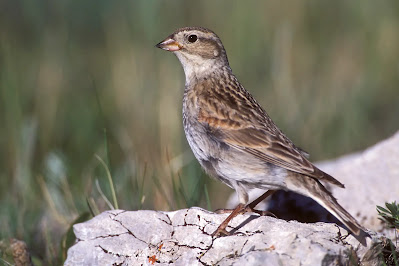The
Moralists Among Us
By Robert A. Waters
Like so many Southerners in 1861, Tennessean John P. McCown (pictured below), a career soldier and graduate of West Point, joined the Confederate army. His resume up to that point had been typical of lifers. He’d fought with the United States army in the Mexican American war, the Seminole Wars, and in Utah, Nebraska, and the Dakota Territory. His service, while not spectacular, was above average.
In the Civil War, his record was spotty. In 1863, Confederate General Braxton Bragg court-martialed McCown, ostensibly for disobeying orders at the Battle of Murfreesboro in Tennessee. After his six-month suspension without pay, he continued to fight until the very end. He surrendered and was paroled on May 12, 1865. (Later evidence indicates the court-martial of McCown was likely triggered by his virulent criticism of the tactics of Bragg and CSA President Jefferson Davis.)
While serving in the west before the Civil War, McCown became interested in ornithology.According to Audubon Magazine, "In 1851, John P. McCown, an amateur ornithologist and army officer stationed in Texas, shot a group of larks on the prairie. Examining his kills, he noted two examples of birds he'd never seen before: pale gray longspurs with a spot of chestnut on the wings and prominent white patches in the tail. After preparing the specimens, he sent [them] off to an ornithologist friend, who gave it the name McCown's Longpsur."
In the 1800s, amateur ornithologists across the country often mailed specimens to places such as the Smithsonian Institution for identification. Many times, new birds would be named for its discoverer or the place it was found. This method of documenting species led to the naming of thousands of birds, fish and animals.
But in 2018, ornithologists began a campaign to rob many a bird of its given name. Slave-owners, colonizers, Confederates, alleged white supremacists, and other "deplorable" humans were to be banned from having his or her name grace any fowl.
Even John James Audubon doesn't make the cut with ornithologists now because he owned slaves and hated abolitionists. In the near future, we can expect the Frenchman who did so much to define our natural environment to be banned from polite society with other reviled Americans, such as George Washington, Thomas Jefferson, Benjamin Franklin, and, of course, Robert E. Lee.
In fact, almost no person who lived 150 years ago or more can meet the insane standards of today's moralists. (NOTE: If you don't believe it, look up some of Abraham Lincoln's comments about black Americans.)
So, goodbye McCown's Longspur. Hello Thick-Billed Longspur.
It might be wise for the name-changers to remember the old saying, "What goes around comes around."



No comments:
Post a Comment